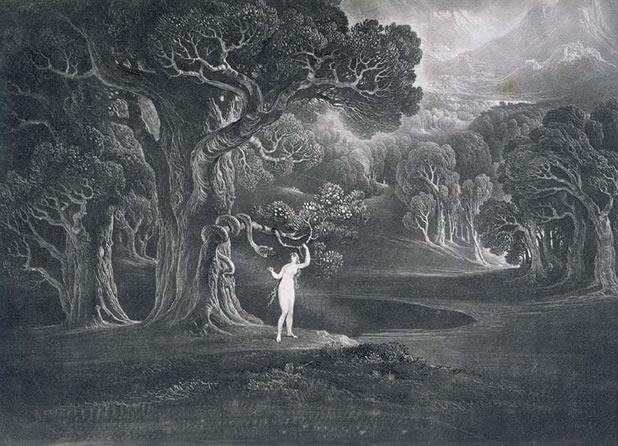The mag also contains a good article on the bowdlerization of Milton's Paradise Lost: Sing, God-awful Muse! by Philadelphia poet Daisy Fried. Both the article and reader comments that follow it are worth the read.
She sounds off about lit profs and their students who complain that the poem is too hard to understand and she compares the profs nattering to the warnings of a prenatal instructor who told her that giving birth and nurturing a baby were undertakings fraught with pain, difficulty, and constant threat of missteps leading near to disaster — and who then commanded her to "relax." Refreshingly, she says both the profs and the instructor are full of it. I agree.
I carried a small book of Milton's poetry with me one winter while traveling on business. Stuck in O'Hare while storms raged all round, I relished the intense concentration Paradise Lost required and enjoyed the whole of it page after page.
It comforts me to recall my view of the huge snow drifts across the runways, seated as I am now, a bit sweaty, typing these words, barefoot, clothed in shorts and a T shirt. I think of relatives recently returned from a Jamaica whose honeymoon photo gallery includes a shot of the two posed before a jungle of palm fronds with a great snake entwining them.
Daisy Fried quotes this out of Milton:
Of Man’s first disobedience and the fruitAnd then quotes on prof's supposed clarification of these supposedly mystifying words:
Of that forbidden tree whose mortal taste
Brought death into the world and all our woe,
With loss of Eden, till one greater Man
Restore us and regain the blissful seat,
Sing, Heavenly Muse.
Tell the story, Heavenly Muse: of humankind’s first trespass, of forbidden fruit whose lethal taste brought death and sorrow to our world, and drove us out of Eden—until one greater human should redeem us and regain the happy place we lost.She goes on —
God-awful enough to tempt me to try my own prose version:Good for her!Sing, Muse, of our first sin, the bite of the apple which brought death and woe to the world, and lost us paradise, which we won’t get back till Jesus Christ —Worse than God-awful! But trying to make Milton idiomatic forced me to discover how necessary his language — syntactically Latinate, defiantly unidiomatic in his own time — is to meaning and to feeling in Paradise Lost.








No comments:
Post a Comment